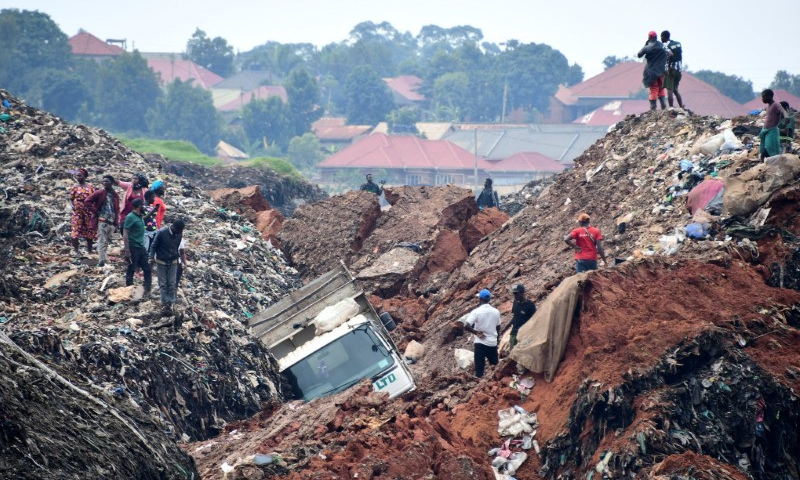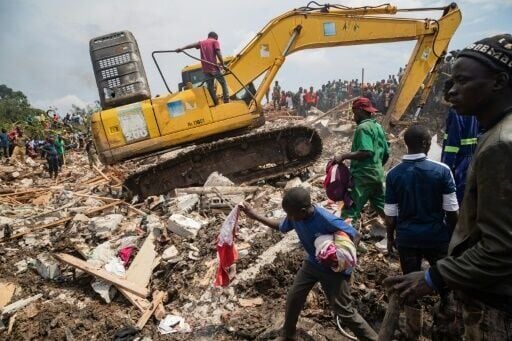Kampala, Uganda
11th August, 2024.
A devastating landslide at the Kiteezi landfill in Kampala has claimed the lives of at least 12 people, in a disaster that has shaken the local community and highlighted the ongoing challenges of waste management in Uganda’s capital. The tragedy occurred late Friday night, following weeks of relentless rain that destabilized the massive rubbish dump, causing a significant portion to collapse onto nearby homes.
The landslide struck without warning, catching many residents off guard as they slept in their homes. The Kiteezi landfill, which is the only dump site serving Kampala’s estimated four million residents, has been a source of growing concern due to its hazardous conditions. The heavy rains in recent weeks only worsened the situation, leading to the catastrophic collapse that buried entire homes under tons of waste.
Residents and survivors describe the night as one of horror and confusion. “We heard a loud noise, and before we could understand what was happening, the ground gave way,” said one survivor who narrowly escaped with his life. “People were screaming for help, but there was nothing we could do.”

Rescue teams, including local authorities, volunteers, and the Uganda Red Cross, have been working tirelessly to find survivors amidst the debris. So far, 14 people have been rescued, but the search continues as the death toll is expected to rise. The Uganda Red Cross has also established temporary shelters near the site to provide emergency assistance to the roughly 1,000 people displaced by the landslide.
The efforts have been hampered by the challenging conditions, with rescuers forced to dig through hazardous waste in an attempt to reach those still trapped. “This is a difficult and dangerous operation, but we are doing everything we can to find survivors,” said a spokesperson for the Uganda Red Cross.
The Kiteezi landfill has long been a contentious issue in Kampala, with residents and activists raising alarms over its safety. The landfill, which has been in operation for years, has grown to alarming proportions, with waste piling up dangerously close to residential areas. This disaster has reignited calls for the government to take urgent action.
Kampala Mayor Erias Lukwago expressed deep sorrow and frustration over the incident, stating, “This is a disaster that was bound to happen. The Kiteezi landfill has been a ticking time bomb, and now we are witnessing the tragic consequences of neglecting this issue.”

The mayor’s sentiments are echoed by many in the community, who have long felt that their concerns were being ignored. “We have been living in fear, knowing that something like this could happen,” said one resident. “Now, we have lost our homes and loved ones. This should never have happened.”
This tragic event serves as a stark reminder of the dangers posed by poorly managed waste sites, not just in Kampala but across sub-Saharan Africa. Similar disasters have occurred in the region, including a 2017 landslide at a landfill in Addis Ababa, Ethiopia, which killed at least 115 people, and another in Maputo, Mozambique, in 2018, which claimed 17 lives.
As the rescue efforts continue in Kampala, attention is turning to what can be done to prevent such tragedies in the future. There is a growing consensus that immediate action is needed to improve waste management practices, upgrade infrastructure, and implement safety measures to protect vulnerable communities living near landfills.
The government has pledged to investigate the causes of the landslide and take steps to prevent a recurrence. However, for the families of the victims and the displaced residents of Kiteezi, the road to recovery will be long and difficult.
Resources:
3.https://www.bbc.com/news/articles/cly8k506ygzo
4.https://bing.com/search?q=Landslide+at+Uganda+rubbish+dump+kills+12